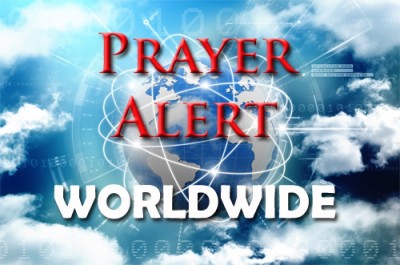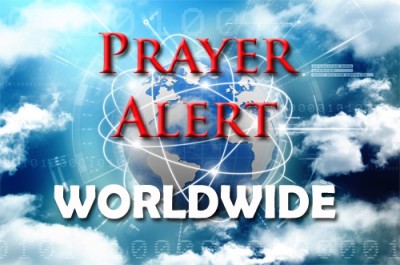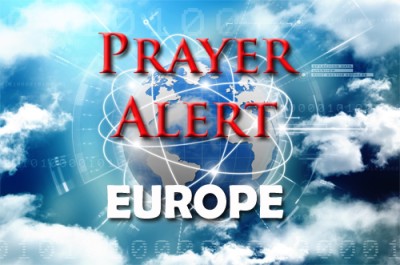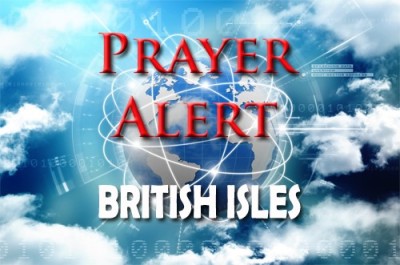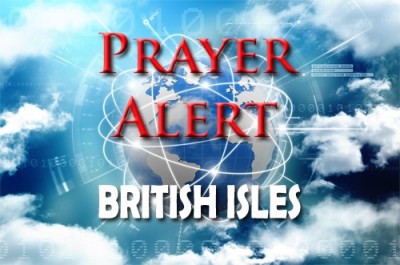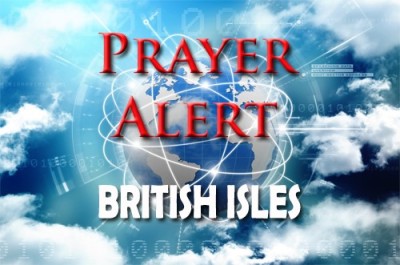Sudan: mosque hit by airstrike, 31 deaths
25 Oct 2024A military airstrike on a mosque in Wad Madani, in the centre of Sudan, has killed 31 people, according to local activists. The attack occurred after evening prayers and was reportedly carried out using barrel bombs. Many victims have not yet been identified, as rescue teams are still working through the remains of dozens of charred and mutilated bodies. Since April 2023, Sudan has been ravaged by conflict between the military and the paramilitary Rapid Support Forces (RSF), resulting in widespread death and displacement. The two sides are battling for control of Al-Jazira state, a key agricultural area, currently controlled by the RSF. Both groups have been accused of war crimes, including targeting civilians and looting.
Christian hopes in Indonesia’s new era
25 Oct 2024As Indonesia witnesses a leadership transition, its thirty million Christians are cautiously hopeful for positive change under president-elect Prabowo Subianto and vice president-elect Gibran Rakabuming Raka. Subianto, a former military general, secured 58% of the vote in this year’s election. Indonesia, the second-largest Muslim country in the world, is home to a Christian minority (11% of the population). While the government allows Christians to worship freely, evangelism remains illegal, and Muslim converts often face social persecution. There are concerns about Subianto’s past support from conservative Islamic groups who might influence his policies. In the past the government has not actively persecuted Christians, but it has not always defended them either, particularly in areas like Aceh, where Islamic law is enforced. Christians are praying that the new leadership will uphold religious freedoms and protect their rights in a predominantly Muslim nation.
Cement maker Lafarge, part of Swiss-based Holcim, will face trial in France for financing terrorism and violating European sanctions to keep a Syrian plant operational. The investigation, ongoing since 2016, is one of France’s most significant corporate criminal cases. Lafarge’s Syrian subsidiary is accused of making payments to militant groups, including IS, to protect staff and maintain operations during the Syrian civil war. Judges ordered the trial after earlier attempts by the firm to dismiss charges of complicity in crimes against humanity were rejected. The charges also relate to breaching European sanctions that prohibit financial dealings with Islamist militant groups. In a related US case, Lafarge admitted in 2022 to paying terrorist-designated groups, including IS, to secure safety at its factory. Anti-corruption group Sherpa, which brought the complaint, continues to push for accountability.
‘Average Joe’: story of a praying football coach
17 Oct 2024The movie ‘Average Joe’ tells the remarkable story of coach Joe Kennedy, whose silent prayer at a high school football game led to a US supreme court case defending religious freedom. Raised in foster homes and expelled from several schools, Kennedy struggled with anger toward life and God. His journey of faith began after serving in the Marine Corps, eventually finding strength in Christ. After his games, he knelt for a thirty-second prayer at the 50-yard line, joined voluntarily by players. The school district ordered him to stop, and when he refused, they sacked him. The case reached the Supreme Court, which ruled in his favour, citing his First Amendment rights. Despite marital strain and death threats, Kennedy and his wife, Denise, reconciled, inspired by the film ‘Facing the Giants’. His story highlights God’s ability to use unlikely individuals for historic impact, illustrating his belief in a personal relationship with Jesus.
The heartbreaking story of Meghan Drye’s loss during Hurricane Helene took a miraculous turn. Meghan, her son Micah, and her parents were swept away by floodwaters in North Carolina. Meghan survived, but Micah, her parents, and their dog Bella were lost. In his final moments, Micah called out to Jesus, and his faith became a source of strength for his grieving mother. Shortly afterwards, Christian artist Elizabeth Londen, unaware of the tragedy, was moved by God to create a painting and poem entitled ‘Can you tell my mommy I’m safe now?’ The poem, written as if spoken by a child in Heaven, brought profound comfort to Meghan and her family, and they discovered that the painting referenced specific details from Micah’s life, including his dog and favourite blanket. Elizabeth reached out to the family, offering the artwork and peace in their sorrow. This story exemplifies God’s intimate presence and reassurance, even in the deepest grief.
In September, UK inflation unexpectedly fell to 1.7%, the lowest rate in 3.5 years, down from 2.2% in August. Lower airfares and petrol prices were the main factors behind this slowdown. The inflation rate now stands below the Bank of England's 2% target, opening the door for potential interest rate cuts. The bank, which has already lowered interest rates once this year, is expected to cut them again in November by 0.25%, with another cut likely in December. While lower inflation is good news for many, economists warn that inflation could rise again due to increased household energy bills. The drop in inflation will also impact the rise of benefits like universal credit, though this will be lower than the expected 4.1% rise in the state pension. Despite the positive signs, the cost of living remains challenging, particularly for low-income families struggling to balance essential expenses like food and heating.
Brexit has had a significant impact on London’s financial sector, with an estimated 40,000 finance jobs lost since the UK’s departure from the EU, according to Michael Mainelli, the Lord Mayor of the City of London. This figure is at odds with previous estimates, including a 2022 assessment which put the job loss at around 7,000. While cities like Dublin, Milan, Paris, and Amsterdam gained positions from the migration of jobs, London’s financial centre has continued to grow, adding roles in insurance and data analysis, bringing the total workforce to 615,000. Mainelli's remarks come as Britain seeks to restore relationships with Europe amid a broader economic slowdown. Although many had hoped Brexit would reduce immigration and deregulate industries, it has proven difficult to disentangle regulations, and the economic slowdown has persisted. Keir Starmer is attempting to rebuild ties with the EU, focusing on improving business relations but ruling out rejoining the single market.
As Parliament debates assisted dying legislation, several charities stress the urgent need to fix the country’s struggling end-of-life care system. Hospices provide vital palliative care, but funding shortages mean that care quality varies across the UK. Tim Daly, who has learning disabilities and cancer, relies on hospice care to remain at home with his mother Valerie. His nurse, Phoebe Mooney, provides essential support, but working in such emotionally demanding roles is challenging. Many hospices rely on charitable donations, with only a third of their funding coming from the government, creating a 'postcode lottery' for care. One commentator has said that people need assurance of symptom control and support before any changes in the law around assisted dying. Hospice UK’s Charlie King warns that the healthcare system is already under significant stress; introducing assisted dying without fixing end-of-life care could exacerbate the situation. Sustainable funding is essential for quality care. See also Justin Welby’s comments:
